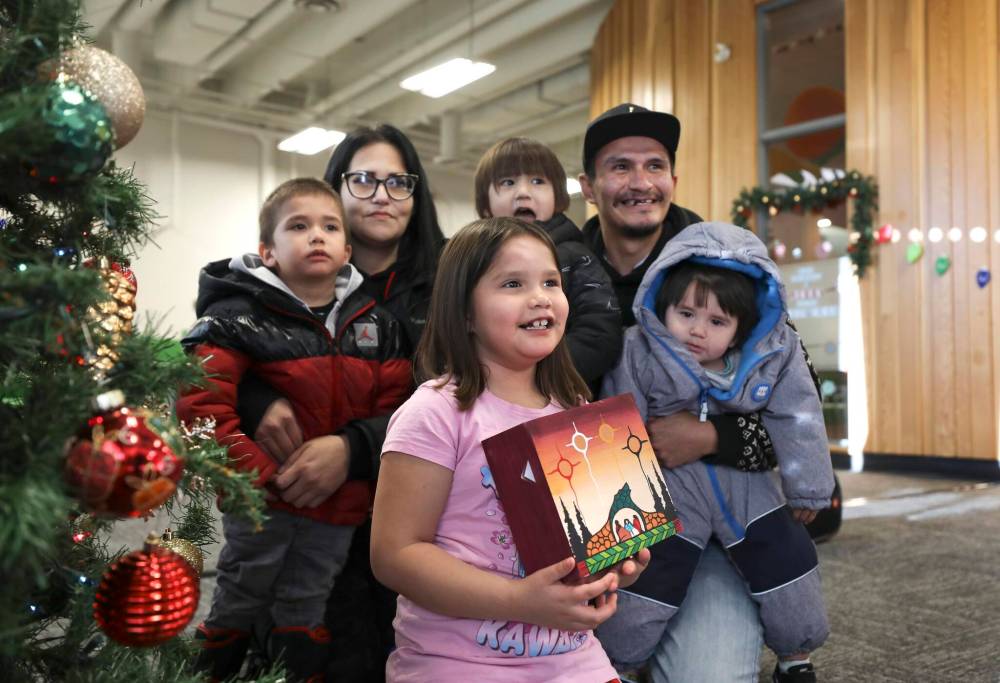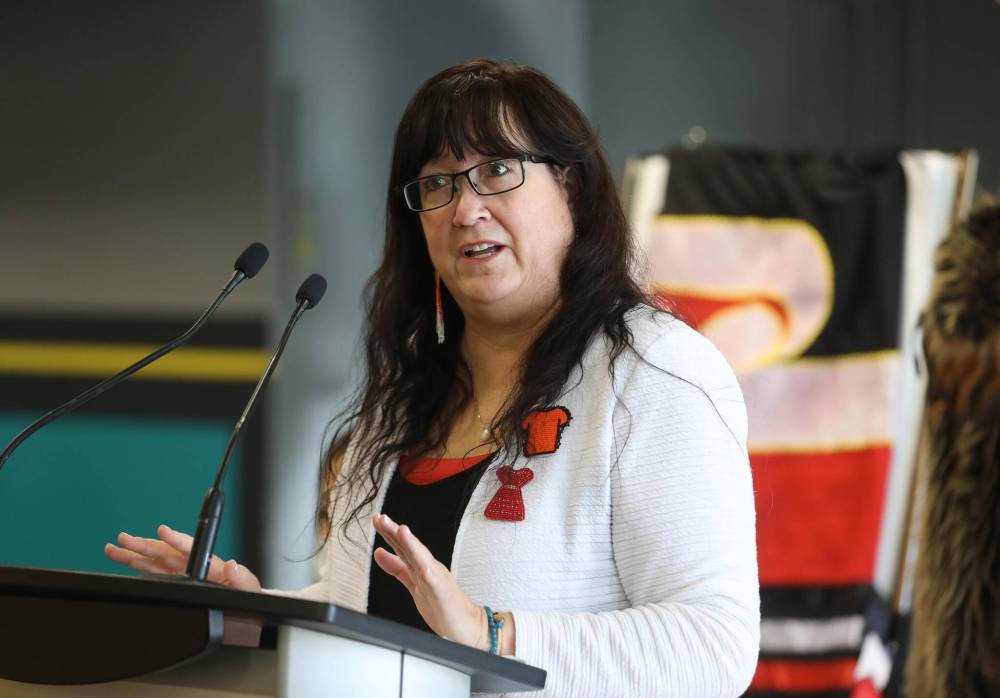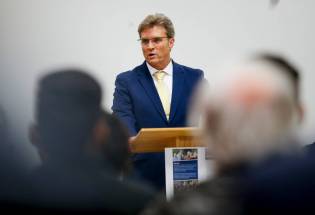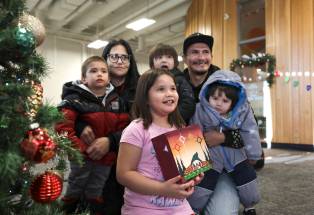Program’s stunning success putting, keeping Indigenous families back together Ma Mawi Wi Chi Itata Centre’s child-welfare strategy 98 per cent successful in reunification after CFS intervention
Read this article for free:
or
Already have an account? Log in here »
To continue reading, please subscribe:
Monthly Digital Subscription
$0 for the first 4 weeks*
- Enjoy unlimited reading on winnipegfreepress.com
- Read the E-Edition, our digital replica newspaper
- Access News Break, our award-winning app
- Play interactive puzzles
*No charge for 4 weeks then price increases to the regular rate of $19.00 plus GST every four weeks. Offer available to new and qualified returning subscribers only. Cancel any time.
Monthly Digital Subscription
$4.75/week*
- Enjoy unlimited reading on winnipegfreepress.com
- Read the E-Edition, our digital replica newspaper
- Access News Break, our award-winning app
- Play interactive puzzles
*Billed as $19 plus GST every four weeks. Cancel any time.
To continue reading, please subscribe:
Add Free Press access to your Brandon Sun subscription for only an additional
$1 for the first 4 weeks*
*Your next subscription payment will increase by $1.00 and you will be charged $16.99 plus GST for four weeks. After four weeks, your payment will increase to $23.99 plus GST every four weeks.
Read unlimited articles for free today:
or
Already have an account? Log in here »
Hey there, time traveller!
This article was published 05/12/2022 (1105 days ago), so information in it may no longer be current.
Kylie Nepinak, 31, cradles her 16-month-old son Kayden in a quiet room at the Ma Mawi Wi Chi Itata Centre Monday morning. Her partner, Randi Thomas, sits beside her, attentive to the fussing toddler. A couple of their other children play happily with toys strewn about the room.
The couple, who have eight other children, the oldest of whom is 12, have been part of Ma Mawi’s Family Group conferencing program for about four years.
“We weren’t doing good at that time,” Nepinak explains in a soft voice.
“After I lost my kids, I was searching everything to try and get them back. I was on Facebook, and I typed in “parenting programs.” A bunch of stuff came up, and someone mentioned (the FGC program). They said it really helps the chance of getting your kids back fast if you’re in the program, so I applied and I got accepted right away.”
Nepinak and Thomas’s kids were returned to their care when Kayden was born. That’s when they say their lives changed.
RUTH BONNEVILLE / WINNIPEG FREE PRESS Kylie Nepinak with her partner, Randi Thomas, and four of their children: Kaycen Thomas (in red), Kingsley Thomas (centre), Kayden Thomas (right), and Kiarra Thomas (front). 
FGC stands for Family Group Conferencing, an Indigenous evidence-based model that is fundamentally shifting the traditional child-welfare model. It helps families involved with Child and Family Services mandated agencies become the decision-makers in reunifying.
All members of a family meet to discuss what is needed to ensure their children will be safe and cared for. They are supported by an FGC mentor and have access to a broad range of Ma Mawi wraparound supports and services. The model empowers families because it acknowledges that each family has the capacity and expertise to address their own concerns and develop care plans, that are typically more extensive than what CFS agencies require in the first place, provided they have adequate resources and relevant information to guide and support their decisions.
According to the 2021 national census, Indigenous children account for 53.8 per cent of all children in foster care.
Ma Mawi has been operating the FGC practice for more than 20 years, however in 2017 the opportunity arose to triple the impact of the program for a three-year period, thanks to an investment of $2.5-million from The Winnipeg Foundation, the province and the federal government. This partnership and funding led to the expansion of the program by 445 additional enrolment spots.
Between April 2017 and September 2020, the program recorded a 98 per cent success rate, reuniting 402 children with their families. Ma Mawi executive director Diane Redsky said based on that number, FGC saved more than $9 million in foster-care costs. The organization said another 141 children were diverted from CFS involvement during that time period, as well.
“The 98 per cent success rate means that children are where they belong, with their families.”–Diane Redsky
“The 98 per cent success rate means that children are where they belong, with their families,” Redsky said.
On Monday, the organization released an evaluation of the program — one that was Indigenous-led, to ensure goals are being met.
“Today is a long time coming,” a beaming Redsky said under an orange Every Child Matters banner.
Nearby, a glass vase was filled with stones, one for each child reunified with family through the program.
One CFS social worker who has many Indigenous clients described FGC as “eye-opening.”
“It puts the families first… they do have a say,” said Russell Nielsen.
The province’s child-welfare system is focused solely on child protection. Family group conferencing is a non-mandated, Indigenous-led program that focuses on family well-being. The partnership between the two has the goal of creating the best safety plan for each family, emphasizing the care and protection of children.
RUTH BONNEVILLE / WINNIPEG FREE PRESS Ma Mawi executive director Diane Redsky said FGC saved more than $9 million in foster-care costs.
“That is the way forward, that is what I hope becomes normalized within the child-welfare system and it’s not just a program off to the side, but this the way we do work all the time,” said Redsky, adding Ma Mawi is pushing for FGC to be written into the Child and Family Services Act, so it’s mandated in legislation.
Families Minister Rochelle Squires said the program works hand-in-hand with the province’s goals of prevention and family reunification.
“We’ll be having conversations in the near future about the next steps, so that we can continue to capture this wonderful success and see it spread and grow and work on our mutual goals on reducing the number of kids coming into care, keeping families together and ensuring that when families do need that support that they require they’re actually getting it,” she said.
FGC’s Manitoba origins go back to 1997, in what Redsky described as an Indigenous Knowledge Exchange.
A Māori student from New Zealand was doing a social work practicum at Ma Mawi. The student recognized similarities in the shared values and sacred bond between children and their families shared by both the Māori and Manitoba’s Indigenous people.
“We’ll be having conversations in the near future about the next steps, so that we can continue to capture this wonderful success and see it spread and grow.”–Families Minister Rochelle Squires
FGC has been part of child and family legislation in New Zealand since 1989; when a Māori child requires protection, a family group practice is mandated, forcing the system to involve the family in decision-making.
Redsky said her organization has forged a “very meaningful and special relationship” with a Maori-led agency similar to Ma Mawi.
“We have been in partnership with them since 1997,” she said. “We really admired their work… with the mainstream system without compromising the Indigenous values and approaches to child-welfare.”
Nepinak and Thomas said the support they’ve received from Ma Mawi and family co-ordinator Brandy Blind has allowed them to reassemble their family and provided hope for the future.
“(Blind) did everything she could to help me, but I had to kind of help myself. I felt hopeless, but she always made me feel welcome and not stuck,” said Nepinak. “There’s been really lots of support,” echoed Thomas.
Twitter @ShelleyACook

Our newsroom depends on a growing audience of readers to power our journalism. If you are not a paid reader, please consider becoming a subscriber.
Our newsroom depends on its audience of readers to power our journalism. Thank you for your support.
History
Updated on Tuesday, December 6, 2022 6:27 AM CST: Fixes punctuation in headline








